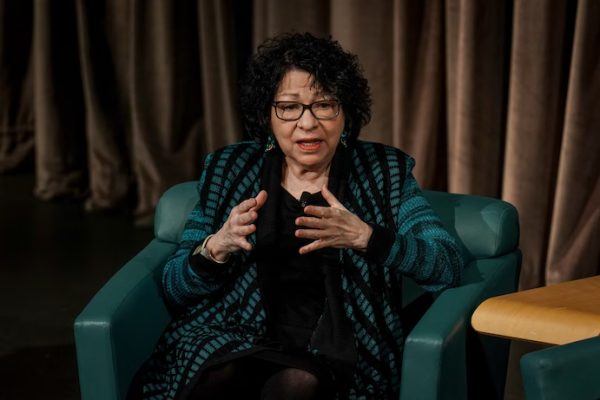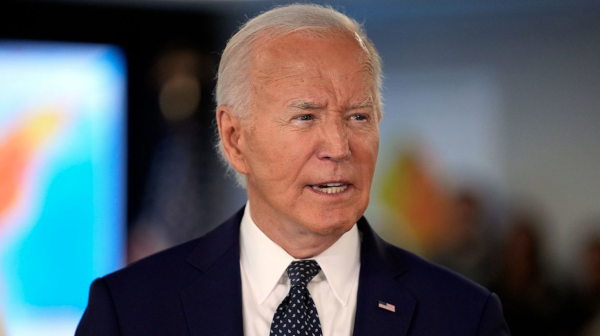Biden declares the next Supreme Court Justice must be an African American woman
In 1980, former President Ronald Reagan announced to the world that the next Supreme Court Justice would be a woman. True to his word, when Reagan assumed the presidency, he appointed Sandra Day O’Connor, who eventually became the first female Associate Supreme Court Justice, a role she fulfilled for over two decades. Now, in 2022, Biden has made a similar commitment to appoint the first-ever African American woman.
Throughout his campaign, Biden spoke of nominating the first African American women to the Supreme Court in hopes of obtaining a large portion of the African American vote. Now that Supreme Court Associate Justice Stephen Breyer has announced his retirement, Biden is putting his plan into action. Justice Breyer will continue to serve his role until Congress takes recess during the summer of 2022. While Biden has not announced an official candidate, he has spoken of one requirement.
“The person I will nominate will be someone with extraordinary qualifications, character, experience and integrity. And that person will be the first Black woman ever nominated to the United States Supreme Court,” said Biden according to CBS News.
This statement sparked much controversy for various reasons. Some believe that the candidates should be considered solely based on qualifications and that race should not be a factor in the decisions. Others believe that while it is important that there is adequate representation within the highest court of the United States, Biden’s statement prevents other minorities from being considered.
Although Supreme Court Justices are not supposed to hold a political affiliation, as their job is solely to uphold the Constitution without being biased by their own beliefs, currently, Justice Breyer is one of three liberal justices. So, Biden most likely will be endorsing a liberal candidate. Democrats control the Senate at this time, so it is unlikely that Biden’s nomination will be met with any push-back.
Throughout history, Supreme Court Justice positions have typically been held by white men. Throughout the twentieth century, the Supreme Court began to become more diverse. In 1967 the first African American male, Associate Justice Thurgood Marshall, assumed the position and in 2009 Associate Justice Sonia Sotomayor became the first Hispanic Supreme Court Justice. Still, according to CNN “less than 5.3% of justices have been women or minorities.” Because the Supreme Court is meant to be made up of a wide range of worldviews, without partisan influence, this lack of diversity is concerning.
Nevertheless, many Republican senators, especially Senator Ted Cruz, have criticized Biden’s statement. Some senators even believe that Biden’s statement correlates with affirmative action and could be preventing other equally qualified individuals from being looked over.
What many politicians forget is that both political parties have used the Supreme Court nomination to support their own party and limit the possible candidates. For example, after the passing of Ruth Bader Ginsburg, former President Trump made the commitment to fill her seat with a pro-life woman, which he fulfilled through the nomination of Associate Justice Amy Barrett. At this time, Ted Cruz had no opposition.
After declaring that his search for the next Supreme Court Justice would be extensive, Biden officially announced his nominee is Judge Ketanji Brown Jackson. Judge Jackson has extensive experience, currently serving on the United States Court of Appeals for the District of Columbia and previously serving as the Vice Chair of the U.S. Sentencing Commission. Now that Biden’s nomination has been announced, the Senate has to confirm Judge Jackson to the Supreme Court. Judge Jackson is typically identified as liberal, so her nomination will not change the make-up of the court.
No matter who Biden nominates, the majority of the Republican party is going to create conflict. The real question amidst all this controversy is why politics is playing such a big role on the Supreme Court when it’s supposed to be the most impartial component of the United States government. Having an African American woman serve on the Supreme Court would be one step closer to equity, but it is important to remember that appointing other minorities, such as Asians, Native Americans, or those who are a part of the LGBTQ+ community, would promote the same ideals.

Lauren Winslow is a senior and is one of the Online Editor-In-Chiefs. She loves to be involved in school activities, so she plays basketball, sings in...











